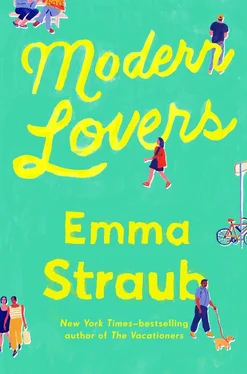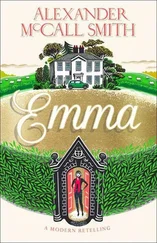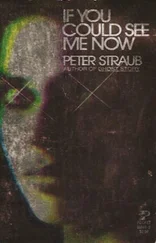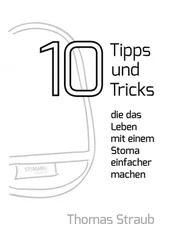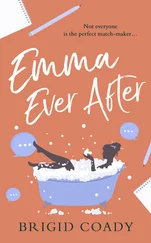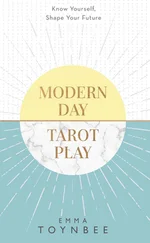Elizabeth backed out of her driveway and drove the four-second commute to Zoe’s house. She didn’t even need to put the car in park — Zoe was waiting out front, wearing a sundress and a large, floppy hat, and she bounded into the front seat like an excited puppy.
“So, what’s up first?” Zoe took off her hat and held it in her lap. “I feel very weird about this, but I really want to do it, so just pretend that I’m a regular client and not just your friend having a midlife crisis, okay?”
“You’re the boss, boss. First up are two apartments in Fort Greene,” Elizabeth said. “Very different vibes. The first one is in the Williamsburgh Savings Bank, with a view to die for, very mod. The second one is a floor-through in a brownstone on Adelphi. Both are really, really nice.” She turned on her blinker and made the left onto Cortelyou, heading toward Flatbush. “Close to the train, close to restaurants, all that stuff.” She looked over at Zoe. “And if you want to stop, we’ll stop, okay?”
“Sounds good to me,” Zoe said. She twisted the rings on her fingers. “What else can we see?”
“There are a couple of condos on the water in Williamsburg, and one in Dumbo.”
“I think I’m too old for Williamsburg.”
“You’re retro,” Elizabeth said. “You’re like a cassette tape. They’ll go crazy for you.”
Zoe slumped over, pretending to be wounded. “Ack,” she said. “Thank you.”
“No, come on,” Elizabeth said. “You’re just going to get the lay of the land, see what feels good. It’ll be fun.”
“Okay,” Zoe said. She flipped down the mirror and patted the skin under her eyes. “Do I look really tired? I have been sleeping like shit. Like absolute shit.” She turned toward Elizabeth. “Tell me the truth.”
Elizabeth waited for a red light and then swiveled as much as she could in the driver’s seat. Zoe did look tired — but they all did. It felt like a minute ago that they could stay up until two in the morning and still look like normal, well-adjusted human beings the next day. Now when she didn’t sleep, no amount of drugstore makeup could disguise the bags under her eyes, and that’s how Zoe looked, too, even beautiful Zoe.
“You do look a little tired,” Elizabeth admitted.
“Fuck, I knew it,” Zoe said. “I swear to God, it’s all a plot. Jane is trying to make me look like a hideous monster so that no one will ever want to sleep with me ever again, and I’ll just pretend to forget that we’re unhappy, and then nothing will ever change, and we’ll just be sad, lonely eighty-year-olds before you know it.”
A dollar van cut in front of them and Elizabeth honked her horn. “I hate driving in Brooklyn.”
Zoe rolled her eyes. “You sound like my mother.”
• • •
They drove to the first appointment of the day, an apartment on the sixteenth floor, overlooking the Barclays Center. Zoe’s house would sell quickly if they priced it right, and Zoe wanted to have a better sense of where she wanted to go before they put the house on the market. If they wanted to sell. If they actually split up. It was the kind of maneuvering that would have driven Elizabeth totally crazy — a complete waste of her time and energy — if they hadn’t been friends, but they were, and so it seemed like the least she could do. It was the equivalent of fantasy football, she guessed — people who couldn’t actually play pretending that they had some semblance of control over the outcome of games on television.
“I could have a sofa over here,” Zoe said, gesturing toward the windows.
“Or over here,” Elizabeth said, gesturing toward the wall opposite.
“The kitchen’s a little small,” Zoe said, and she was right, it was just a corner of the room with a few cabinets from Ikea and a cheap, glossy black countertop. She ran a finger over the lip of the stove. “This is a piece of garbage.”
“Not everyone is married to a chef,” Elizabeth said, wanting to make light of it, but it wasn’t light at all, and Zoe turned her back.
“Not even me, pretty soon,” she said, and it was time to leave.
• • •
The next apartment was better, warmer. Elizabeth unlocked the door and walked in first, half a step ahead. As soon as she crossed the threshold, she could feel how much more Zoe would like it. No matter what she claimed to want, Zoe liked old things, and no shiny apartment building was going to be the right choice. The second apartment had moldings and curved doorways and hundred-year-old windows with wavy glass. She loved it.
“And there’s a shared garden,” Elizabeth said, pointing out the back window.
“And we’re three blocks from BAM!” Zoe clasped her hands together, her silver rings little punctuation marks between her fingers. “This is a good one, Lizzy.”
Elizabeth waited in the front room while Zoe poked around the closets. “Do you want my measuring tape?” she hollered, but Zoe didn’t respond.
When she was young, Elizabeth had imagined that she would live in a number of houses as an adult — a garret in Paris, overlooking a cobblestone street; on the beach in California. She and Andrew loved to talk about the possibilities. That was one of the things she’d always liked about her husband, how open he was to ideas. Peru? Sure! New Zealand? Why not?! But after Harry was born, and they found their house, it was harder to travel, to be bohemian in the way they’d always imagined they might be. All their money was in that house, in its bricks and plaster, and if they sold it, they would have to ask Andrew’s parents for money to move anywhere more desirable, and no one wanted that. Not Elizabeth, not Andrew, not his parents. They’d made the trip from the Upper East Side to Ditmas Park eight or nine times, full stop. There were nominal reasons, as if they needed them: Andrew’s father walked with a cane, and his mother couldn’t be in an enclosed space without the fear of a panic attack, and so had been on the subway only a handful of times in her life. Of course they could take a car, but the distance was too much, psychologically. It was easier to make an annual pilgrimage in the other direction, up to the limestone and the army of doormen and the manicured medians of Park Avenue.
Was it too late for them to leave? Once Harry was out of high school, they would be free to make another choice, to move to an adobe house in Santa Fe, but could they make friends? At fifty? Maybe it was better to wait until they were seventy-five, old enough to move to a retirement community, a place on the coast of South Carolina that offered shuffleboard and karaoke. Andrew would rather die. Marfa, maybe, or a place upstate, near the Omega Institute. No place where they’d be surrounded by people like his parents. Sometimes Elizabeth looked at her husband and for a split second, he looked identical to the way he did as a twenty-four-year-old, with his sharp chin and his hooded eyes. He was so much angrier than Harry, even now, after decades of trying to be the opposite of how he was raised. Sometimes it worked, and sometimes it didn’t. When Andrew got upset, she could see the fury rise in his face like on a cartoon, red-red-red-red until his head exploded. Most of the time, he was able to dial it back down, but sometimes, rarely, he still exploded. Harry had only seen it happen a few times in his life, and every time, he had immediately burst into tears, the fire extinguisher to his father’s four-alarm blaze. They worked in both directions, actually — whenever Harry was undone, by a broken toy or a skinned knee, Andrew swooped into action, calm and comforting, a perfect nursemaid. Elizabeth was grateful for that, for their joint sweetness. It was so hard to tell when a child’s personality would harden and fix, but it seemed true that Harry was kind and quiet, a good boy.
Читать дальше
